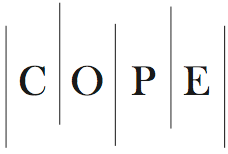About Complications
Aims
Complications (ISSN 2813-4966) is an international, peer-reviewed, open-access journal that focuses on the prevention, diagnosis, etiology, and management of complications in all aspects of basic, translational, and clinical research, as well as epidemiology. The journal seeks to offer best practices and expert experience, and recommendations on intraoperative and postoperative adverse events, published quarterly online by MDPI.
Measuring the quality of health care delivery has been a crucial point of interest for policymakers due to the increasing demand and cost of health care. These quality metrics are typically based on outcomes data; this data must be standardized and reproducible. Further, these metrics inform hospital training initiatives, compensation profit margins, and insurance reimbursement, which may ultimately impact the quality-of-care delivery and total costs. To that end, one essential component of evaluating quality outcomes for surgeries is negative outcomes, such as adverse events (AEs).
Almost 20 years ago, Martin et al. reviewed the available reporting systems used for surgical adverse events to establish a possible change in attitude towards the reporting of complications using standardized systems. After that, the Clavien–Dindo system was proposed to improve the reporting of postoperative adverse events, their effect and complications, and now is currently widely used for the reporting of complications related to surgical interventions. More recently, to address the gaps in intraoperative adverse events reporting, the Intraoperative Complications Assessment and Reporting with Universal Standards (ICARUS) global surgical collaboration project was established to offer recommendations for the development and implementation of future reporting systems that are focused on the intraoperative surgical and anesthesiological outcome.
Complications aims to establish best-practice and expert opinion recommendations on intraoperative and postoperative adverse events. Authors are tasked with addressing four components of perioperative adverse events: (1) assessment, (2) reporting, (3) analysis of possibly anticipable factors (patients, disease, and surgical characteristics that might have an impact on the surgical and anesthesiological adverse events) and (4) management.
This information is of considerable interest, and its practical usability might have important implications for academic and clinical practice. Editors and reviewers should suggest assessing and reporting as an outcome of interest for quality and training purposes. The choice of the correct outcome reporting tool is of paramount importance, and failing to choose the appropriate system could potentially lead to reporting data that are far from reality. Surgeons should prioritize assessing and reporting adverse events to standardize their management. Ultimately, these efforts will uncover the true impact of these events on patients’ perioperative course. Complications publishes reviews, regular research papers (articles) and short communications.
Scope
- Surgical/procedural complications
- Complications
- Intraoperative Complications
- Postoperative Complications
- Adverse Events
- Conversion
- Sequelae
- Readmission
- Training
- Interventional Cardiology
- Interventional Radiology
- Anesthesiology
- Bariatric and metabolic surgery
- Breast surgery
- Cardiovascular surgery
- Colon and rectal surgery
- Dentistry and oral surgery
- Endocrine surgery
- Esophageal surgery
- Gastrointestinal surgery
- Head and neck surgery
- Hepato-biliary-pancreatic surgery
- Hernia
- Image modeling and analysis
- Medical conditions after surgery
- Neurosurgery
- Orthopedic surgery hernia
- Pediatric surgery
- Plastic surgery
- Robotics and instrumentation
- Surgical education, practice, and research
- Surgical translational research
- Thoracic surgery
- Transplantation
- Urology
MDPI Publication Ethics Statement
 MDPI is a member of the Committee on Publication Ethics (COPE).
MDPI takes the responsibility to enforce a rigorous peer-review together with strict ethical policies and standards to ensure to add
high quality scientific works to the field of scholarly publication. Unfortunately, cases of plagiarism, data falsification, inappropriate
authorship credit, and the like, do arise. MDPI takes such publishing ethics issues very seriously and our editors are trained to proceed in
such cases with a zero tolerance policy. To verify the originality of content submitted to our journals, we use iThenticate to check submissions against previous publications.
MDPI is a member of the Committee on Publication Ethics (COPE).
MDPI takes the responsibility to enforce a rigorous peer-review together with strict ethical policies and standards to ensure to add
high quality scientific works to the field of scholarly publication. Unfortunately, cases of plagiarism, data falsification, inappropriate
authorship credit, and the like, do arise. MDPI takes such publishing ethics issues very seriously and our editors are trained to proceed in
such cases with a zero tolerance policy. To verify the originality of content submitted to our journals, we use iThenticate to check submissions against previous publications.
Book Reviews
Authors and publishers are encouraged to send review copies of their recent related books to the following address. Received books will be listed as Books Received within the journal's News & Announcements section.
MDPI
St. Alban-Anlage 66
CH-4052 Basel
Switzerland
Copyright / Open Access
Articles published in Complications will be Open-Access articles distributed under the terms and conditions of the Creative Commons Attribution License (CC BY). The copyright is retained by the author(s). MDPI will insert the following note at the end of the published text:
Reprints may be ordered. Please contact for more information on how to order reprints. Announcements regarding academic activities such as conferences are published for free in the News & Announcements section of the journal. Advertisement can be either published or placed on the pertinent website. Contact e-mail address is . For further MDPI contacts, see here.Reprints
Announcement and Advertisement
Editorial Office
Contact us


